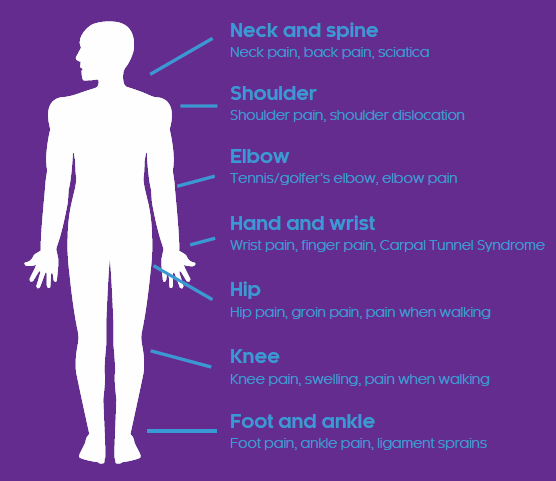Chronic Pain
What is Chronic Pain?
Chronic or persistent pain is pain that carries on for longer than 12 weeks despite treatment or medication. Chronic pain can be "on" and "off" or continuous. It may affect people to the point that they can't work, eat properly, take part in physical activity, or enjoy life.
Types of Chronic Pain:
- Arthritis, or joint pain
- Back pain
- Neck pain
- Cancer pain near a tumor
- Headaches, including migraines
- Lasting pain in scar tissue
- Muscle pain all over (such as with fibromyalgia)
- Neurogenic (nerve) pain

What will we do to help?
You can now see a First Contact Physiotherapist at Moatifled Surgery. A First Contact Physiotherapist can access and diagnose your condition. They can provide you with advice on management options, and give you appropriate exercises to help your condition and complete any onward referral required.
You will be referred directly from the reception team if you have any MSK conditions such as:
- Muscle Pain
- Joint Pain
- Nerve Pain
- Spine Pain
Physiotherapy Self - Referral Form
Please press the click here button to direct you to our Physiotherapy self-Referral page. Here you can access and print the referral form.

How can I help myself?
- Planning your day - Make a plan of things to do and places to be to help you keep on top of your pain.
- Pacing yourself - Don’t push through the ongoing pain, take a break before it gets worse then go back to whatever you were doing after some downtime.
- Relax - Relaxing can be hard when you have pain but meditation and mindfulness can help distract you from the pain.
- Doing Exercise - This will help keep your joints and muscles strong as well as easing the pain.
- Medicine - Although this can be helpful temporarily, it is a good idea to avoid it where possible as it is very easy to become reliant on them.
- Build a support network - Make sure to inform family and friends of your struggles.
- Enjoyment - Doing activities that help boost your serotonin which is known as the happy chemical can help deal with the pain.
A good first step to helping yourself is to watch this video ‘Understanding Pain in Less than 5 Minutes and What to do About it’
Additional Resources
Last revised 03/02/2026

